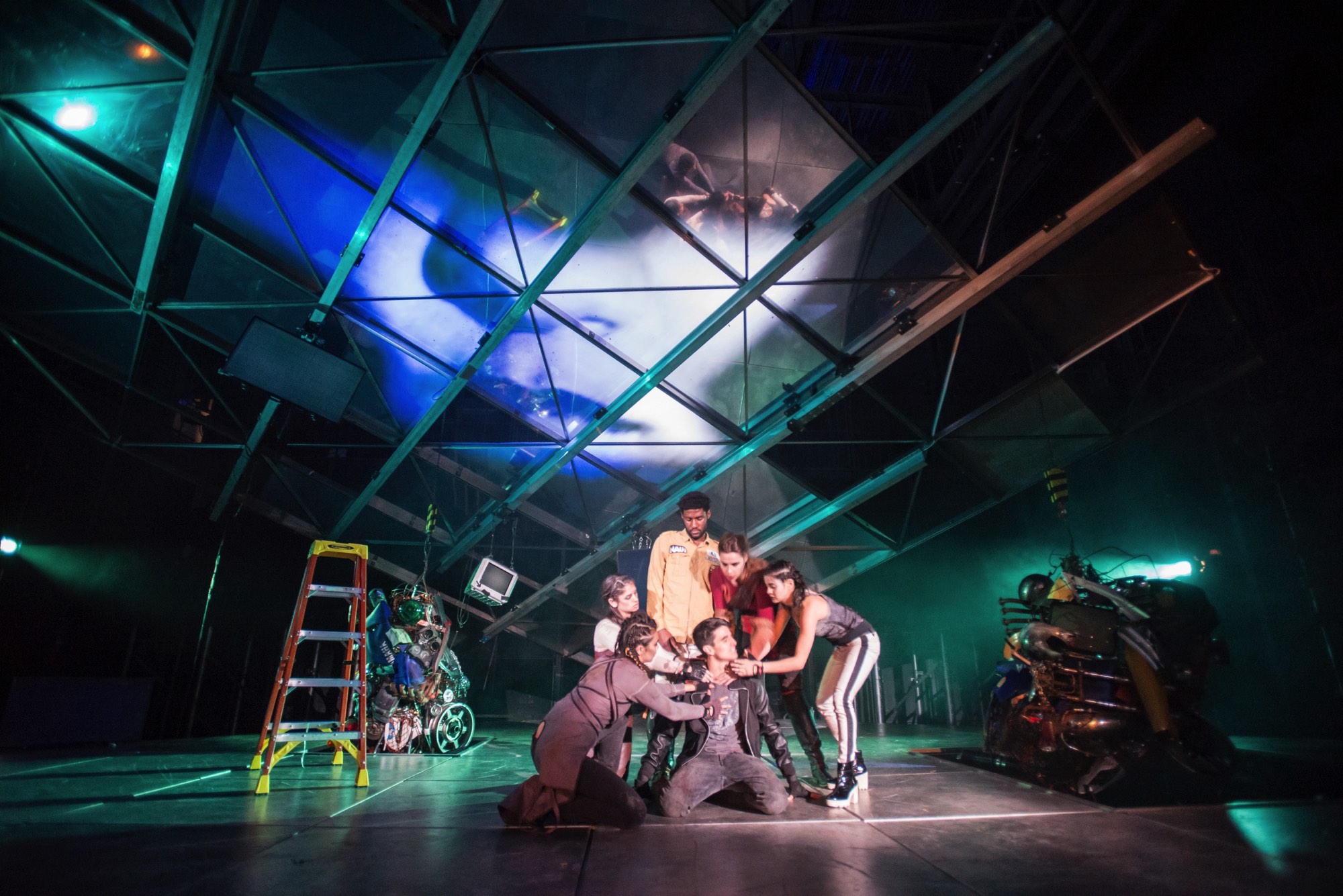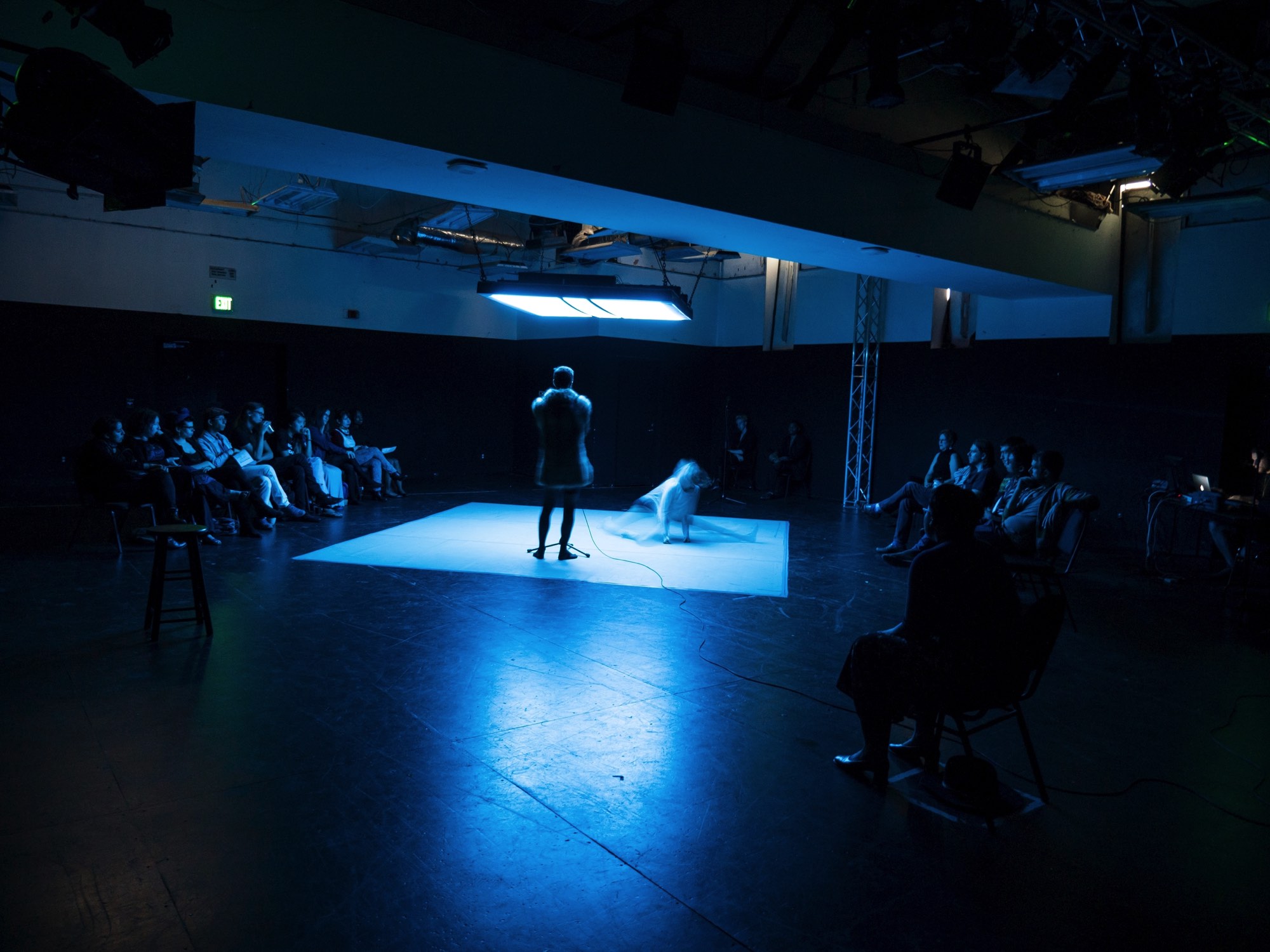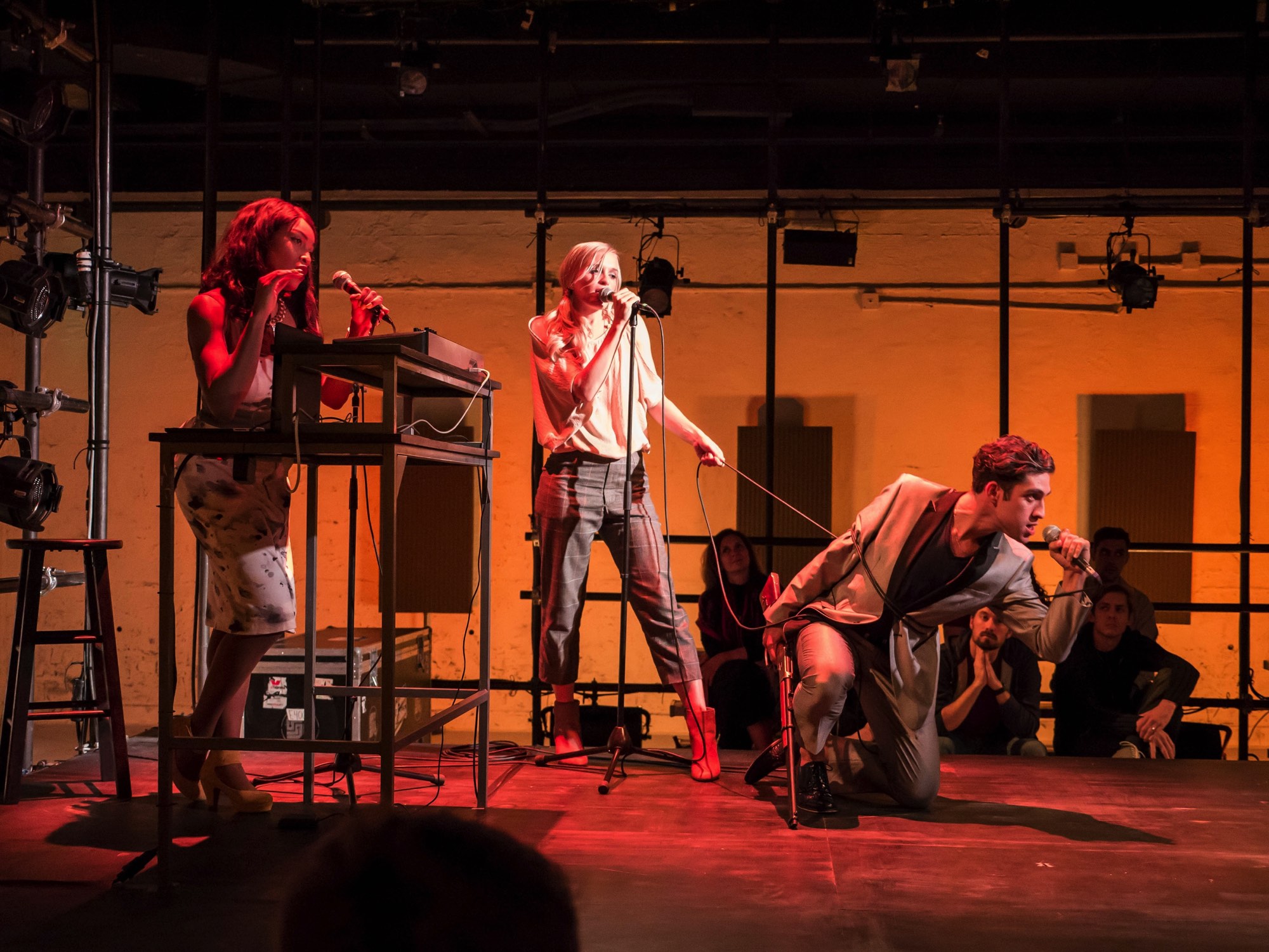Performance documentation, stage 2 execution - What is a photo call?
Sometimes I'm shocked when I talk to performance artists and I suggest that we have a photo call to capture their documentation images and they look at my like my head just exploded. I'm relatively new to the theater community, but I've known about this as a process for documentation since my first theater shoot a few years ago.
Photo Call - the basics:
- Designers, directors, and others collaborate on a list of scenes they want photographed
- Production manager (typically) writes up a schedule to run through specified scenes in whatever order makes the most sense and shares this with the production team
- Actors, production team, and entire crew are called for a specific time and the scenes specified in the schedule are run through, allowing the photographer to capture them.
- Typically the photographer has the ability to ask the actors and crew to re-run scenes, or pose specific tableaus as needed to capture specific images.
- Photographer communicates what is and isn't working, and can adjust on the fly.
Why a photo call instead of straight production photos?
- Photo call allows the photographer to communicate with the crew and actors
- Allows the actors to just run through the scenes needed for images
- Photographer can get on stage, or much closer to the action than they would shooting a full run through
- Pausing action or at least slowing it down, especially in dark settings, leads to much cleaner photographs
- Photographer can move around without fear of disturbing your patrons
- More dynamic images can be produced
Why not just run the whole show for photographs?
- Time is money and the less time you need to have a photographer on site, or processing images the better you'll be on budget
- Simply shooting through a whole show without guidance from designers, directors, and others can generate a ton of images, but they will be a waste of space without some specificity as to what the team needs
- The temptation to run the whole show for photos easily slips into simply shooting when their is an audience, which goes back to problems that are noted above
Shout out to Brian Hashimoto who was instrumental in the creation of this text and for teaching me what a good photo call looks like.
Performance documentation, stage 1 planning
Work backwards from the end goal
I'm a big fan of identifying what you want to do and working backwards to accomplish it. Want to be sitting at the beach with a cocktail? Figure out how you're going to make it happen. Will you be on vacation? Will you be working? If you're on the beach, does it matter? So what does figuring out how to drink cocktails on the beach have to do with documentation? It's all about figuring out what you want, and how to get there.
Categorization of assets
Documentation end-use typically falls into a couple of different categories:
- Marketing
- Archival & Historical
- Reference
To get academic about it, I'd further categorize these with internal and external designations. Are materials being used internally by you, the artist, to come back to? Or are you using them primarily for external audiences for things like advertising. Thinking along those lines we can look back at our list as:
- Marketing (external)
- Archival & Historical (mixed internal/external)
- Reference (internal)
It's worthwhile to have these categories in mind when making your documentation plan. Some useful questions to ask yourself in the planning stages include:
- Is documentation required by your funding organization?
- Will you need to create promotional materials?
- Is this a final piece going into production, or in workshop and you will pick it up again later?
- Are you presenting your piece at a location, or at an event that is particularly noteworthy?
There are numerous things to think about in designing your documentation plan, but at it's heart simply asking yourself if you're needing internal or external assets will be a good start.
Internal vs External assets
As we noted above, the major differentiation between internal and external documentation assets will be whether you're using them for your own references, or whether you're generating promotional materials with them. While you might be able to use assets generated without this in mind, the acquisition tactics might be different based on your end goal.
Internal use assets such as a reference images from a workshop or rehearsal might be adequately captured on a GoPro mounted in front of your rehearsal space. Since you're the primary user of that footage, it all depends on what you want to do with it. If you just need reference material for a dance rehearsal, basic capture on your own might be just what you need.
Mixed use assets would require a slightly different approach than purely internal reference material. Your static GoPro camera that captures everything easily, and allows you to review footage at the end of the day might not be sharp enough for archive quality, and it might be so wide that it distorts the scene too much. Having a photographer attend a rehearsal session might be more reliable way to ensure you are getting images that can both be referential and used externally.
External use assets are typically designed in a more polished way. Unless you are specifically creating process images for social media use (which many artists are doing now) you'll likely want to capture images with full tech, costume, and in a complete set. Typically this means that you'll be bringing in a video person and / or a photographer to capture images during tech rehearsals. Many theater companies have a specific photo-call where actors are in full costume, and the production manager quickly runs through a specific set of scenes that the artists want to capture. Beyond photo-calls I've also worked with artists to stage photography outside of the theatrical space in order to develop purely marketing related images.
The planning process
I would definitely suggest you look at your documentation plan before you get too deeply into the creation process. There is nothing worse than waiting until closing night to try and get documentation for a project. Your crew, actors, and designers don't want to delay strike, or stay late on closing night for photos. Plus, if you wait until the end of your run to get professional images captured, you can use them for any promotional purposes.
If you need to develop marketing materials, you'll want to either design and stage images or video that can be used before you ever get to the tech rehearsal point. That mean's you'll need to work with a photographer or video person to come up with a concept, and shoot those pieces while you're in rehearsal.
If you can wait until tech rehearsal starts to generate final images, or promotional pieces I would suggest you book a photographer or video person early for your tech run. That way you they can watch the piece first, find out where the image needs are, and be sure they can capture them best based on the space and your requirements. Let them come watch a full-length run through so they know what to expect.
If your primary goal is to capture reference material for yourself then you can be a bit more relaxed in your planning process. However, I will say, it's good to have a plan and stick to it. If you are bringing a simple video camera into rehearsal every day do it every day. Make it part of your process, that way you won't have to think about it when you run out the door every day. Alternatively if you are bringing in a photographer for a workshop, either let them have free reign to capture images ad hoc, or provide them a set of guidelines of what you want to achieve with the images personally.
The purpose of creating a documentation plan is that it lets you create a budget for those materials. When I say budget, we aren't just talking money. Everything you commit yourself to takes time, and the more things you decide to do on your own, the thinner your time will be stretched. If you're directing a piece and plan on also taking photos, and creating a promotional video for it, keep in mind that the more time you work on those pieces the less time you'll be able to dedicate to the final theatrical performance.
In addition to that, many funding organizations require documentation. To make it easy on yourself you'll want to add documentation into your budget at the outset, and have a clear idea of what you want to deliver to the funding organization.
Write down some goals
If you've gotten this far, you're probably already thinking about what you want to do with your documentation and that's great. Grab a pad of paper and write down some goals, even if they aren't things you think you'll ever achieve it's good to know where your head is at.
Next time: Performance documentation, stage 2 execution and what is a photo call.
Shout out to Brian Hashimoto who was instrumental in the creation of these ideas.
Theater process documentation, some thoughts
Performance documentation comes in many forms, for me – no surprise it’s images I love – ever since reading classic photo essays in my Time Life books, I’ve always been fascinated by photo essays. There is a magic that still images bring to documenting a long-term project. As the photographer you imbue them with a certain meaning for yourself, but anyone else looking at the images will bring their own feelings and thoughts to to them as well.
I had the chance to document the musical Dead Awaken from rehearsal and inception all the way through to production. The images that came out illustrate the movement through space, and transformation from actor to character. The full photo essay can be found online at Exposure.co, but I wanted to share a few images and excerpts here too.
To me, there is something really powerful and useful about looking at process documentation. Having images that tell the story of your project from start to finish not only lets others enter into the experience of making new work, but it gives you as the artist visual markers and reminders of what you did, and how you did it. These kinds of images are useful, not just for immediate purposes on big productions, but even images captured at small workshops can be useful years down the line when you are coming back to a work in progress.
Excerpt from the essay:
“The cast and crew moved into the space a few weeks before opening. I think that as soon as a production moves into it’s final space the stakes get higher. All of a sudden the world of the designer and the world of the actor smash together. Hopefully the set works, hopefully the lights are programmed correctly, hopefully the sound mixer has run all the right cables. There is a mixed excitement in seeing characters come to life, even if everyone isn’t off book yet.”


